Miss Saigon in Singapore is Cameron Mackintosh's 'last big production' of the musical
As Miss Saigon plays in Singapore at the Sands Theatre, the prolific theatre producer reflects on a 60-year career working on the world’s best-loved and longest-running musicals including Les Miserables, The Phantom of the Opera and Cats.
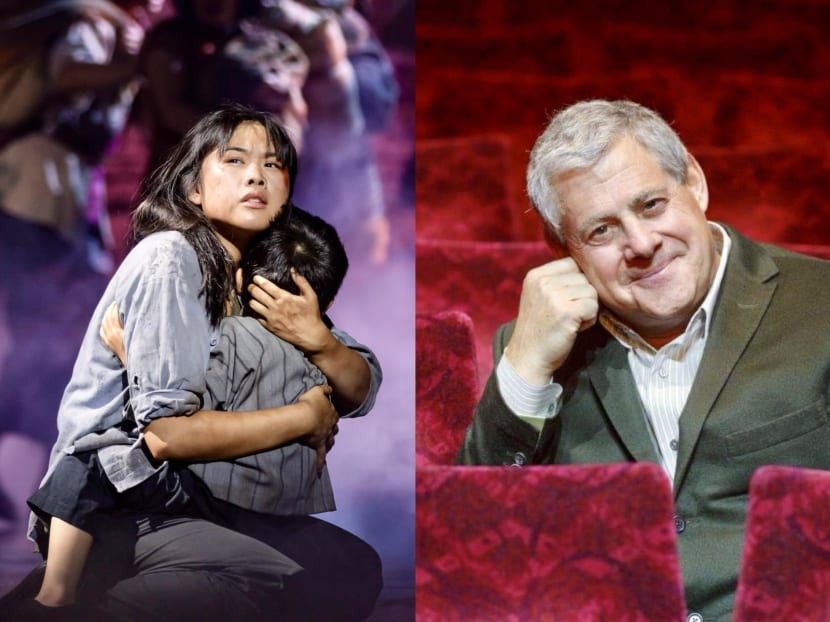
Miss Saigon is one of musical theatre producer Cameron Mackintosh's greatest hits. (Photo: Miss Saigon/Daniel Boud)

This audio is generated by an AI tool.
If there’s anyone who knows what makes a stage production a powerful classic that will stand the test of time, it’s Sir Cameron Mackintosh.
The track record of the producer who brought us the longest-running musicals of all time – Les Miserables, The Phantom Of The Opera and Cats, as well as Miss Saigon, now playing in Singapore – is quite peerless.
How tedious must it be for him to still be talking about these shows after some 40 years?
“I’m completely flabbergasted,” Mackintosh, 77, told us over the phone from his country estate in the UK. “Three and four decades on, my shows are still going, and acting like brand new shows again. That’s what’s amazing.”
It has been 23 years since Miss Saigon was last in Singapore, but Mackintosh still remembers the Kallang Theatre where it was staged. He also credits Singapore with creating “one of my greatest culinary memories”. “I was taken to a huge outdoor food place” near the airport, he enthused. There, he had “the best chilli crab I’ve ever eaten.”
Although he hasn’t travelled here for the current production, he’s still fully invested. “I’ve absolutely loved redoing it again. I obviously do care a lot about making sure it’s never a ‘revival’. I treat the show every time as a brand new production,” he said. What’s more, “You’ve got the last big production I will do with Miss Saigon. I don’t think one could ever afford to do it again at the scale you’ve got!”
Mackintosh’s multiple award-winning musical by French songwriter Alain Boublil and composer Claude-Michel Schonberg, now playing at Marina Bay Sands’ Sands Theatre, first debuted in London’s West End in 1989. Since then, it has been seen by 38 million people and performed in 15 different languages, in more than 32 countries and 350 cities.
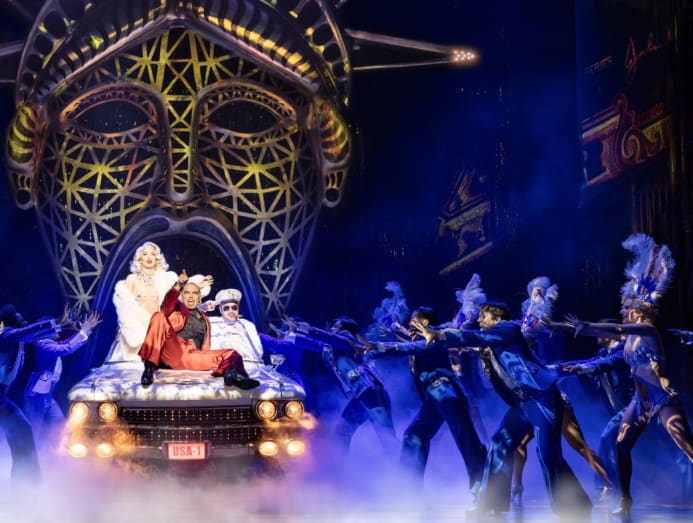
Set in 1975, the musical tells the story of a young Vietnamese woman forced to work in a bar run by a man known as the Engineer. She falls in love with an American soldier and they marry, but when Saigon falls, she is left struggling to raise their son alone while waiting for his return.
“At its heart is a truthful story which has tremendous resonance with the Asian audience. That’s what makes Miss Saigon special for me. There aren’t many western musicals that have the ability to do that,” Mackintosh said, pointing out that the story is historically relatable in countries like the Philippines, where many of the original 1989 cast members were from. And, “What Singapore itself went through in the Second World War – it hasn’t vanished.”
The themes, of course, are universal and timeless. Mackintosh didn’t hesitate to remind us that Miss Saigon’s plot can trace its lineage to the 1887 French novel Madame Chrysantheme by Pierre Loti and the 1900 play Madame Butterfly by David Belasco, both of which predate Puccini’s Madama Butterfly.
“The two themes of Miss Saigon that will always be resonant are the love story – two innocent people being trapped and torn apart by a war – and, of course, the other story, which is the ultimate sacrifice a mother can make for her child,” Mackintosh opined.
These are “two very powerful, primal instincts that affect everyone the world over,” he said, adding that the story could be set anywhere at any time “where ordinary people fall in love with each other and they are on opposite sides of an argument, and that has nothing to do with why they fall in love. I think this is why this story has lasted… I think that’s what makes a classic everywhere – when the ideas that underpin the story still have relevance now.”
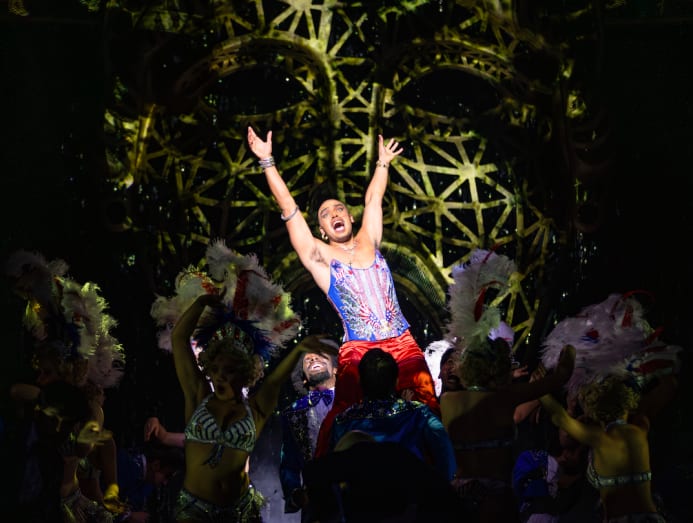
Of course, actors can bring their own sensibility to the material. For example, Seann Miley Moore in the role of the Engineer, Mackintosh said, has “brought a new vibrancy and, I think, contemporariness in the way he plays the Engineer. When you have a great show, you find new artists of a new generation. We can make the language work for a contemporary audience as well as contemporary performers.”
The famous helicopter scene is another example of innovation and evolution. “This version is by far the most sophisticated… it’s the most realistic and, I think, the most harrowing version we’ve ever done.” Technology “allows us to add another brushstroke of colour, like a really good painting being given further depth.”
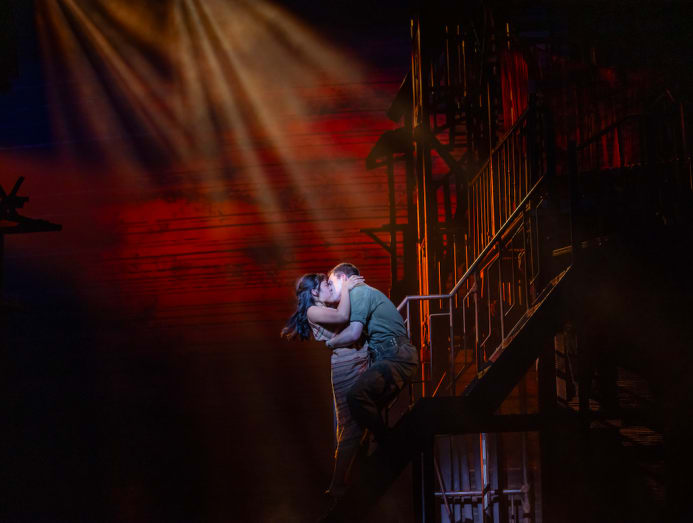
But, “we’re not trying to compete with the CGI of cinema, which, in the end, I find a bit deadening when you see too much of it,” he said.
In an age where screens are everywhere, there is still a unique kind of magic that musical theatre possesses, he reckons.
“I think actually, the inexorable rise, for good or bad, of social media, and everyone doing their job through some sort of laptop or screen, has made people appreciate live experiences, whether it’s in the theatre or concert hall or indeed watching a football match,” he mused.
“The theatre audience has hugely changed over the last 15 to 20 years. The majority of people who go to my shows are now much, much younger. Those are the people brought up on tablets at school.”
People still want to interact with other people and have communal experiences, he asserted. “Sometimes, it’s the only chance you get – by going out.” In every era, “People always found the money to go out and make life worth living. The difference is, we have such sophisticated home cinemas now, it takes an exceptional film to make you want to go out to the cinema.” But, the theatre experience still stands alone. “People don’t go just because it’s a musical, they go because it’s a fantastic experience like no other.”
The “experience we had in COVID-19” drove this point home, he continued. “For the first time in all our lifetimes, including the Second World War, the theatre, along with life, shut down,” he said. “When my big shows like Phantom and everything shut down, people realised they couldn’t take these shows for granted. There are not many of their scale of success, and they are not replaceable.”
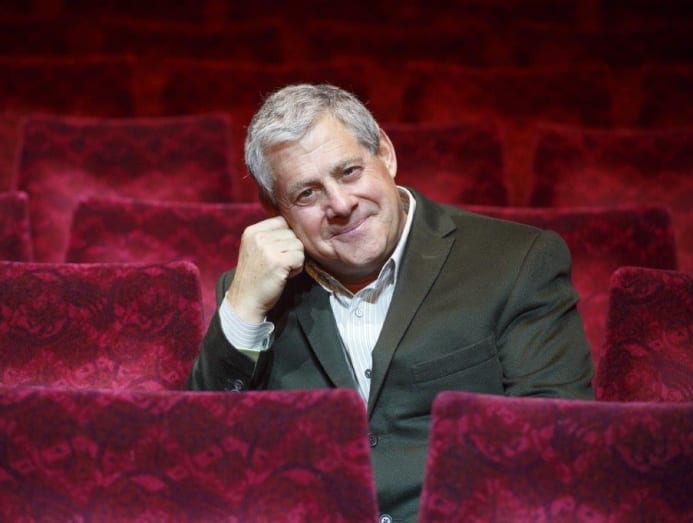
That’s the reason “all of my shows are doing far, far better,” he said. “People were thinking, ‘Oh, it will run forever’, and they suddenly realised, ‘Perhaps forever isn’t forever’.”
While there have been “some entertaining new musicals”, “there aren’t at the moment any that you know will be the classic of the future. Hamilton would be the last one, and that was nearly 10 years ago.”
On his part, “I happen to be drawn by great stories, usually from great authors. At the heart of everything is humanity. I never decide to work on any show unless I like, first of all, the story; and then the characters. After that, of course, I want good music, but that in itself is not a raison d’etre for me to take on these shows. Otherwise, I’d get bored!”
Les Miserables, for instance, the “most character-driven” musical, is based on “arguably the greatest social novel ever written, by Victor Hugo”. It has “incredibly powerful themes that relate today as much as they did 100 years ago. That’s why the songs are anthems for anyone fighting injustice around the world today. It’s so interesting how art has been mirrored by life.”
Asking him to pick a favourite musical would probably be like asking him to pick a favourite child. He keeps mementos from each production at his rural residence in the English county of Somerset.

“There are things I can’t bear to throw away,” he said. From Miss Saigon, “something Alain and Claude-Michel found when they went to Vietnam – the most beautiful Vietnamese umbrella, which I have at my swimming pool. It’s exquisitely made. I love having that. And one of those Vietnamese puppets they’re very famous for, from Hanoi.”
From the set of the Les Miserables movie, which he also produced, he’s kept “the great elephant that Gavroche lives in. It’s made of polystyrene, but for me, it’s a work of art. They were going to throw it away. I said, ‘No, no, no, I can’t bear it.’ It still strides through my garden.”
From Phantom, “I have one of the original elephants and chandeliers up in an area of my house where I keep all my costumes.”
At the same time, he reminded us, “My other job is, I’m technically a farmer. I have two huge dairy farms. Incredible quality milk. I make my own cheddar cheese.” In short, “My mind might be in the theatre, but my mind is in the countryside.”
His other passion, closely linked, is cooking. “Last night, I cooked a beautiful piece of turbot with lovely fresh herbs grown in my garden. Chervil, parsley, lemon butter sauce. I had my own potatoes – new potatoes from the garden. I boiled them until they were all done, and then I mashed them, and I put some butter on them and baked them in the oven with a little, tiny bit of wild garlic pesto, which we made earlier in the year. And then, fresh peas from the garden, which I shelled myself.”
After all, where he is in life, it’s his vision, not his physical presence, that’s needed in the great no-business-like-show-business. “I’ve always been good at taking holidays,” he quipped.
“I think being on holiday is as important as working. I’m incredibly privileged. Almost 60 years, I’ve been producing. I’m still as enthusiastic as I was as an eight-year-old” seeing Salad Days for the first time and deciding to become a theatre producer. “I can hone in and still keep my enthusiasm for that little bit of extra magic dust that only I can bring, whilst I’m still fit and healthy.”
Catch Miss Saigon at the Sands Theatre, Marina Bay Sands. Tickets from S$60 to S$250 via Marina Bay Sands, Sistic or Klook.





